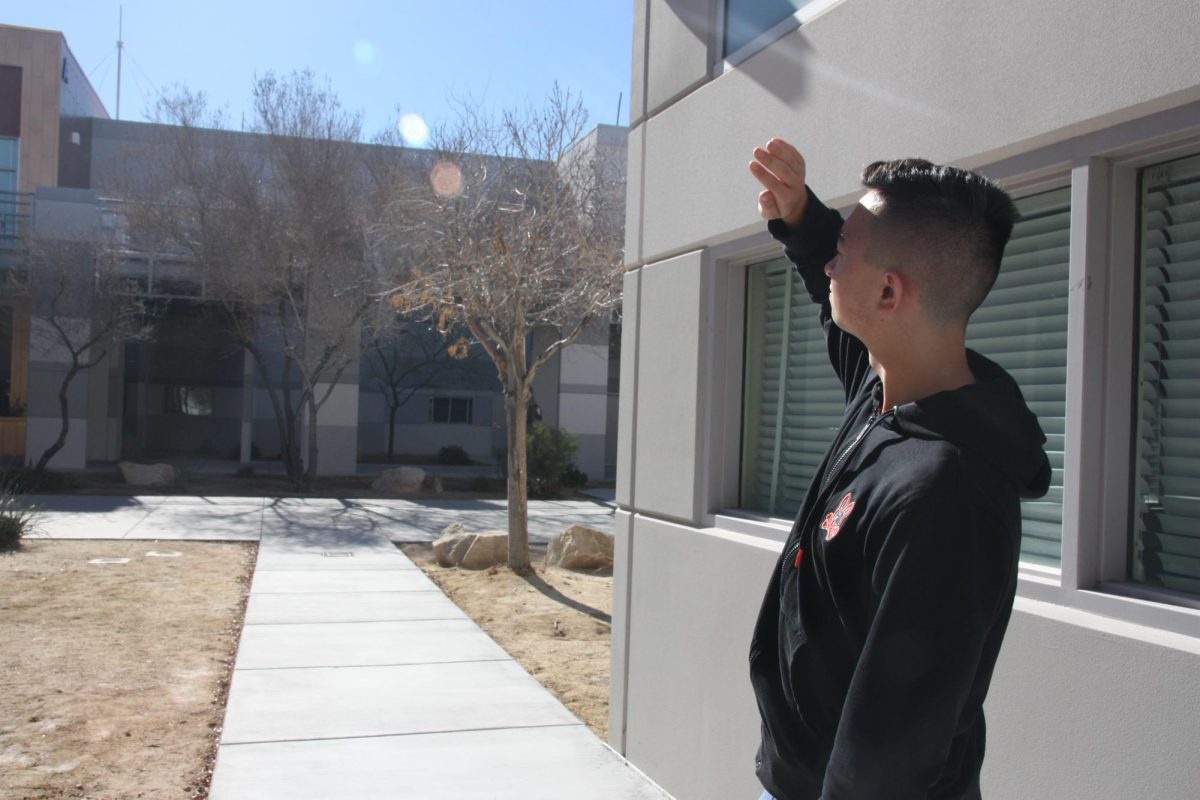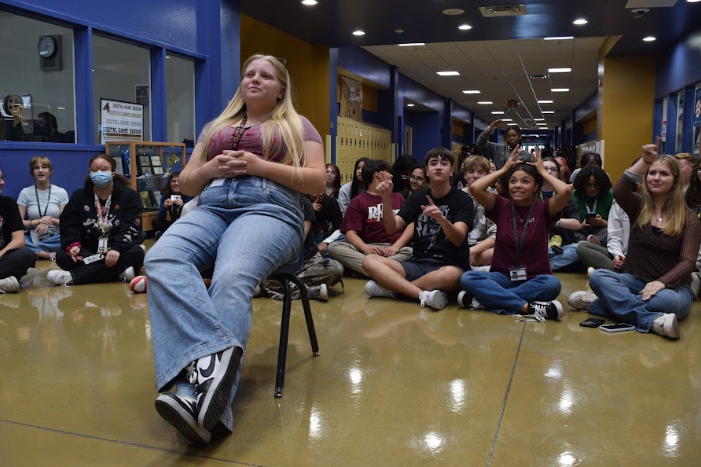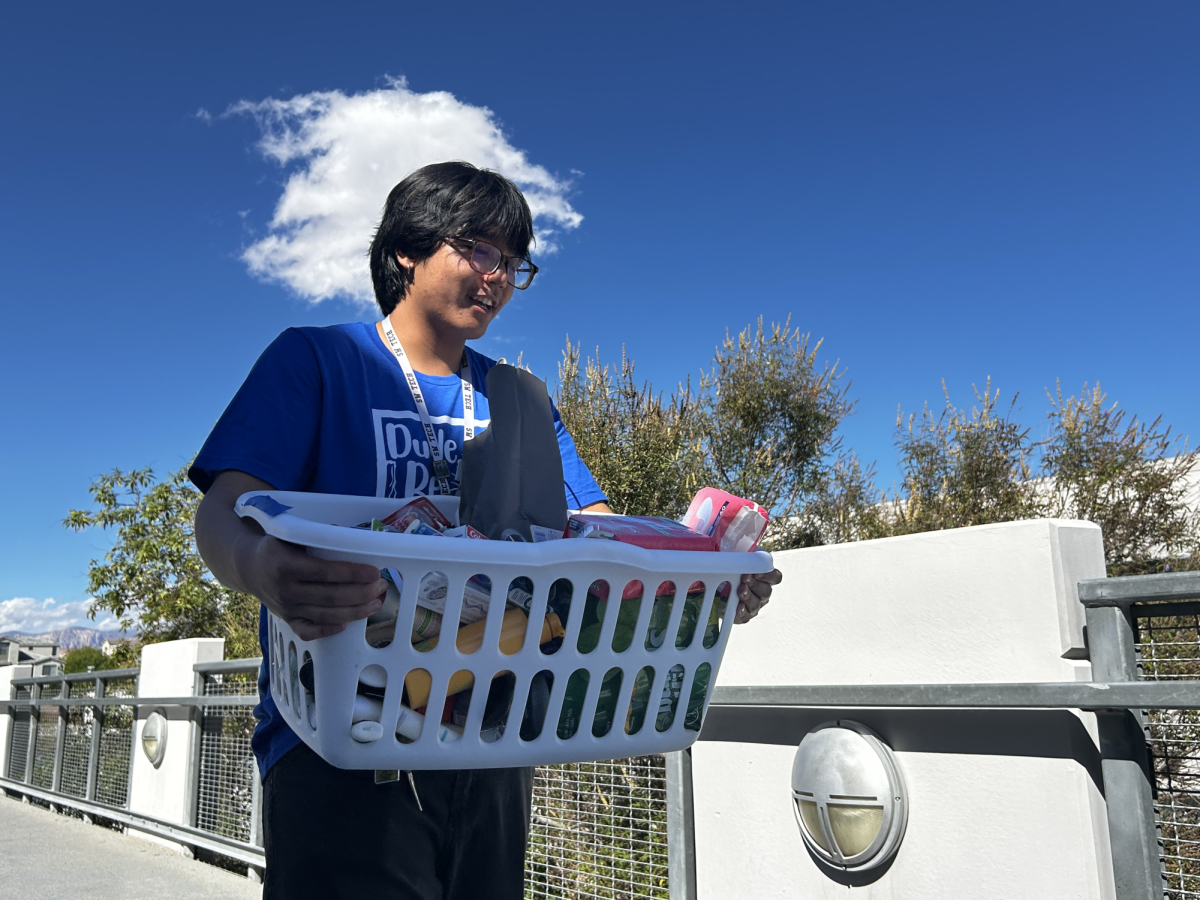Las Vegas is considered the second fastest warming city in the United States, largely due to factors like climate change, a larger population, and the desert’s arid climate. This raises concerns for the Las Vegas population regarding our economic and environmental status.
According to the Las Vegas Sun, 27 percent of the Las Vegas workforce is supported by the tourism industry. However, as the weather in Las Vegas becomes more extreme, it may deter tourists and take away from the cities’ primary economic sector.
“Tourism is what makes the city run, the casinos are what make Las Vegas run,” junior Ariadne Martinez said. “[We] wouldn’t exist without casinos, without our tourism appeal.”
As temperatures increase, outdoor recreational tourism will decrease. As of now, a third of Las Vegas tourists visit golf courses, generating over a billion dollars in revenue and employing thousands of workers.
“It’s really bad, like every time I go into my car it’s just flames. Honestly, it’s so hot it discourages you from doing anything,” senior Justyn Grayce Moceros said. “I feel like a lot of tourists already don’t come here because it’s just so hot during the summer and nobody really wants to walk on The Strip or do anything at all because it’s over 100 degrees.”
Less tourism doesn’t only affect big corporations. The Las Vegas Sun revealed the tourism industry generates 35% of the state’s general fund tax revenues. Fewer tourists means less taxes and more stress on our already struggling school system, public construction projects, and more.
“I 100 percent think that construction workers shouldn’t be working in such hot conditions.” sophomore Meriyaah Contreras said. “That could be life-threatening, and it could lead to heat strokes.”
However, steps have been made towards a more sustainable Las Vegas. According to PRN, Allegiant Stadium and the Las Vegas Convention Center have partnered with nZero to display real time carbon emission data to be used to maximize de-carbonization efforts.
“[Buildings on The Strip] can turn off the lights at night, conserving their energy,” Chavez said. “All the lights being on 24/7 is definitely damaging everything.”
Other students believe that the best way to reduce the carbon footprint is through cultural messages that encourage social change.
“On The Strip, there are a lot of places to advertise and the casinos could advertise what’s going on in our environment and make people more aware,” Moceros said. “In my sophomore year, I took AP Human Geography, and we learned that a lot of our money and our funds come from The Strip and tourism. So, if we don’t have a lot of tourists that’s obviously going to affect us as residents negatively.”
It’s important to adapt to what’s coming if it can’t be prevented. The Meditererranean saw a 10% drop in tourists this past summer due to scorching heat, with a high of 120 degrees according to the World Economic Forum. Las Vegas isn’t far away, reaching a whopping 116 degrees this past July.
“Having more inclusive indoor things is important,” sophomore Meriyaah Contreras said. “Tourists could get heat stroke, pass out, they need to provide the right environment for the people who come.”


![Looking at the board, former BSU secretary Christina Altaye begins to prepare for BSU’s second year of Club Feud. This year, “Are You Smarter Than a Ninth Grader?” will be replacing this event. “I think it’s a fun change [to Club Feud],” BSU Activities Director Hellen Beyene said. “[I think] it’s always fun to do something new and different.”](https://southwestshadow.com/wp-content/uploads/2025/10/Screenshot-2025-09-29-11.06.43.png)



![Displaying a QR code for students to scan, the flyer allows students to sign up and learn about their desired colleges as they visit throughout the school year. Many schools have had additional presentations for students to learn more about what they offer. “For me, I’m interested in criminal justice,” junior Zion Jefferson said. “I know that UNLV and Nevada State University have this major. But, [the college fair] is going to be beneficial, so I can see what other schools offer as well.”](https://southwestshadow.com/wp-content/uploads/2025/10/IMG_2721-1200x900.jpg)
![Working in the Student Success Office, Attendance Secretary Lordis Depiazza inputs a student’s absence excuse note. Students are required to bring an excuse note to the attendance office within three days of any absence. “Reminding students that being in school is important because it reflects towards your grades and being able to do any activities with the school,” Depiazza said. “[It] seems to get the students' attention about wanting to be in school.”](https://southwestshadow.com/wp-content/uploads/2025/10/IMG_8313-1200x800.jpg)